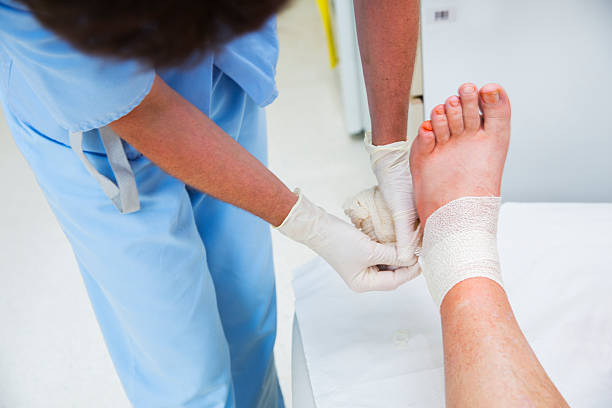The Vulnerability of Achilles
Neuroma
March 25, 2016Treating Bunion Pain
April 18, 2016
The story goes that as a baby, Achilles’ mother took him down to the River Stix and, holding him by his ankle, dunked him into the magical water, which granted invulnerability to every part of him it touched. While he proved to be a great warrior, a poison-dipped arrow eventually found the back of his unprotected ankle and killed him.
Named after the mythical Greek hero, the Achilles tendon is located at the back of the ankle. It is a vital connector within the muscular-skeletal system, responsible for joining the calf muscle to the foot at the heel. The Achilles may be the body’s largest and strongest tendon, but like the story suggests, it is also the most vulnerable. As the body ages, tendons tighten and become less pliable and more prone to injury, unable to absorb the shock of impact during activities like running and jumping.
According to Dr. Sherman Nagler, Houston’s Foot Doc, there has been a recent increase in Achilles injuries among “weekend warriors,” ages 35-55, who are ill prepared for their activities. However, athletes like football and basketball players, dancers and swimmers still face the greatest risk of injury. Both professional and amateur athletes fear the telltale popping noise made by a partial or complete Achilles tendon rupture, and the severe pain followed by lengthy recovery foretold by the frightening sound.
Houston’s Foot Doc, Sherman Nagler, shares the following advice:
- Be Flexible: Follow these tips for healthy feet, and avoid tempting rupture or tendonitis by stretching your calf muscles, feet and Achilles tendons thoroughly. Let the podiatric specialists at Nagler Foot Center show you the proper stretching and strengthening techniques to help prevent future foot problems.
- Be Aware: Parents, don’t confuse a tendon rupture or partial-tear with a twisted ankle. If your athletic child has issues standing on tiptoe or is unable to push off the floor without pain, contact your podiatrist or family physician ASAP.
- Be Positive: There are a number of treatment options available for tendon issues, including surgical repair and non-surgical rehabilitation. After decades of experience, Dr. Nagler has perfected a minimally invasive corrective procedure that results in minimal scarring and quicker-than-average recovery times.
Do not leave any injury untreated. Minor problems today may cause long-term, irreversible damage tomorrow. Schedule an appointment with Nagler Foot Center or contact the specialists with questions online, by phone (713-529.1010) or email.
“We may not have access to magical waters,” said Dr. Nagler, “but we still help patients heal quickly and yes, even prevent the suffering and pain caused by debilitating Achilles injuries.”


